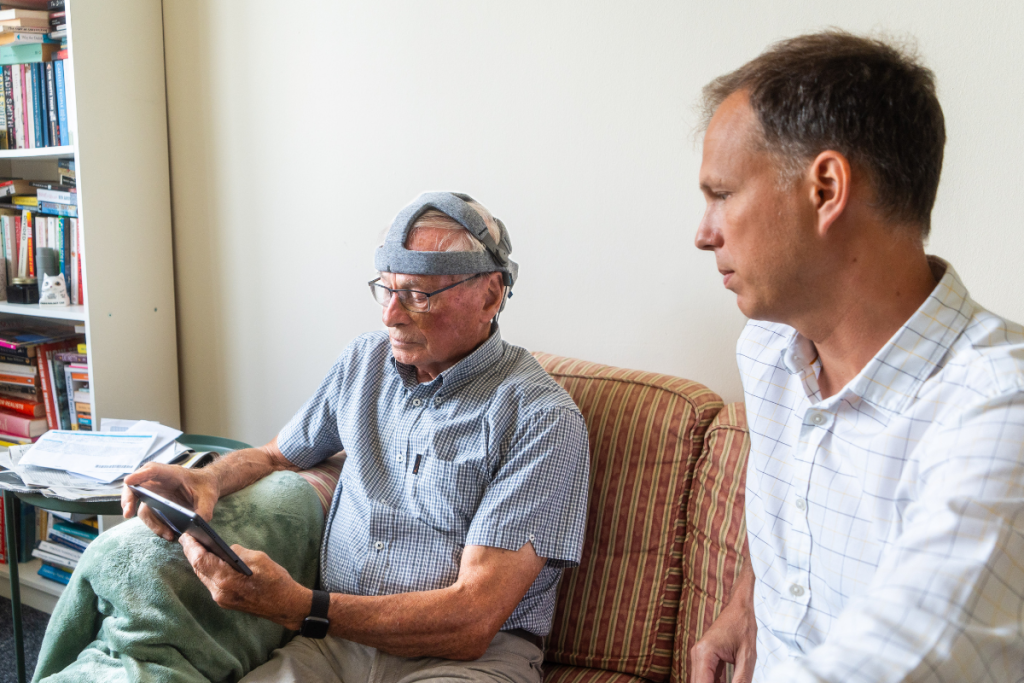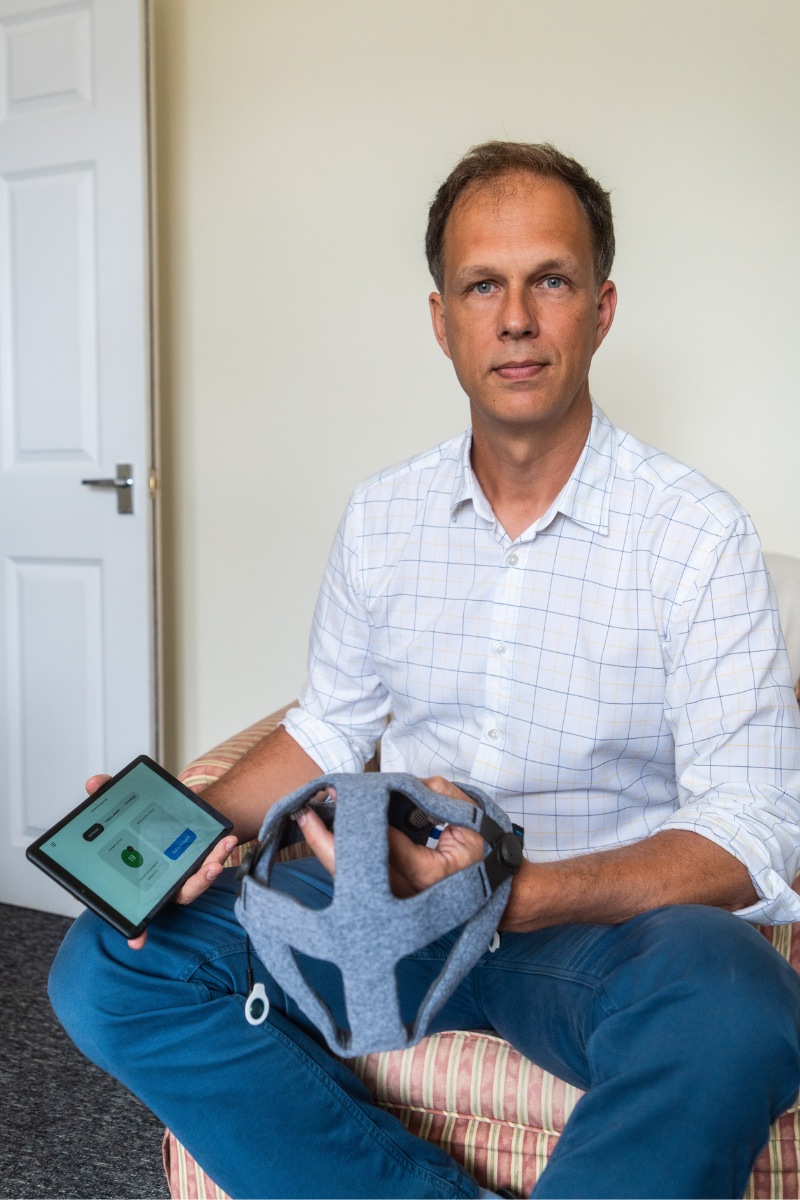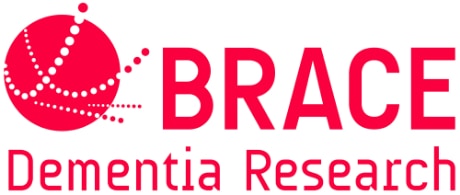
Early Alzheimer’s test detects memory decline, from home
A BRACE-funded research project has shown that the Fastball EEG test can be used in patients’ homes for the first time.
A simple brainwave test developed at the University of Bath has been shown to detect signs of memory impairment linked to Alzheimer’s disease, years before a diagnosis is typically possible.
Fastball is a three-minute passive test that records electrical activity in the brain while participants view a stream of images. The research has shown the test can reliably identify memory problems in people with Mild Cognitive Impairment (MCI) – a condition that can lead to Alzheimer’s. This follows the group’s previous study in 2021 that demonstrated Fastball was sensitive to memory impairment in Alzheimer’s disease.
Crucially, the research team has shown for the first time that the test can be administered in people’s homes, outside of a clinical environment. Researchers say this opens the door to wider screening and monitoring using accessible, low-cost technology.
With the development of the breakthrough Alzheimer’s drugs, donanemab and lecanemab, an early diagnosis is more important than ever before. The drugs are clinically proven to be the most effective in the early stages of Alzheimer’s. Despite this, in England, it is estimated that as many as 1 in 3 people do not currently have a dementia diagnosis, delaying treatments, support and research opportunities to tackle the condition.
The study was led by Dr George Stothart, pictured with the test. He is a BRACE funded researcher at the University of Bath. He said:
“We’re missing the first 10 to 20 years of Alzheimer’s with current diagnostic tools. Fastball offers a way to change that – detecting memory decline far earlier and more objectively, using a quick and passive test.”
“There's an urgent need for accurate, practical tools to diagnose Alzheimer's at scale. Fastball is cheap, portable, and works in real-world settings.”

Chris Wiliams, CEO of BRACE Dementia Research, said:
“Fastball is an incredible tool that could offer anyone who, for whatever reason, cannot access a dementia diagnosis in a clinical setting.
BRACE has been supporting the development of Fastball for several years, and we are excited to see what Dr Stothart’s team will achieve over the next few years with ongoing support from the charity.”
A huge thank you to BRACE supporters who have made this research possible. If you have the means, please donate to ensure BRACE can keep funding groundbreaking research like Fastball, thank you.
